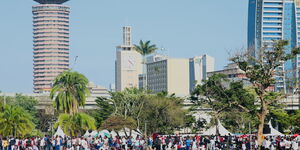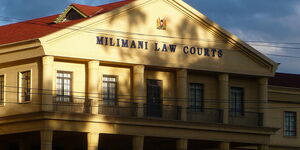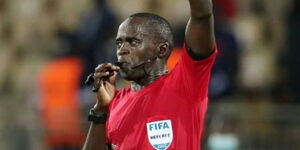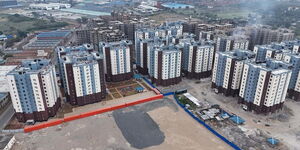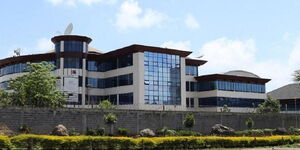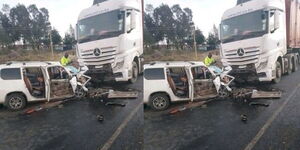The National Assembly on Tuesday, April 11, debated the Defence Committee's recommendations for British Military training and living in Kenya.
The recommendations sought to review the Kenya-UK Defence Cooperation Agreement for British soldiers in the country.
The recommendations, which were designed to cover Kenya's military cooperation with other foreign countries, listed murder among crimes under the jurisdiction of the host country.
"This recommendation was informed by the Ms Agnes Wanjiru-incident in Nanyuki, and a memorandum filed to the Committee by the County Government of Laikipia, and the input of key other players," the report read in parts.
Wanjiru was allegedly murdered by a British soldier in March 2012 and her body was found dumped inside a septic tank after an argument.
UK media reports claimed that the British soldier had confessed to a fellow squad member to killing the 21-year-old woman and dumping her body in a septic tank at Lions Court Hotel in Nanyuki.
In order to address such misfortunes, the Defence Committee report also demanded that visiting forces be subjected to the Constitution, laws and regulations of Kenya.
If ratified, the Kenyan Government will have jurisdiction over any member of the British soldiers in the country as well as the civilian component or dependants for any criminal offence committed in contravention of any law.
British soldiers will also be subjected to customary international law, treaty or any agreement which Kenya will sign with other nations.
It was also recommended that any offence not arising in the course of official duty shall be subject to the primary right of Kenya to exercise jurisdiction.
A corporation committee will determine whether an offence arises out of an act or omission done in the course of the official duty of a British soldier.
"For the avoidance of doubt the following offences are not to be considered offences arising out of an act or omission in the course of official duty, and they include sexual offences, torture, inhumane or degrading treatment of persons, transnational organised crimes, slavery, offences against the Host Nation's security, robbery, attempting, aiding and abetting the commission of the aforementioned offences," the report stated.
However, British soldiers in Kenya will not be subjected to situations where jurisdiction is expressly conferred on the Service Authorities of the United Kingdom.
"The Service Authorities of the Sending Nation shall have the right to exercise within the territory of the Host Nation or on board any vessel or aircraft of the Host Nation all criminal and disciplinary jurisdiction conferred on them by the law of the Sending Nation over Visiting Forces," the report recommends.
At the same time, the Defence Committee report advises that Kenyan authorities will give sympathetic consideration to a request from the UK authorities.
"If the relevant authorities having the primary right decide not to exercise jurisdiction, they shall notify the appropriate authorities of the other Party as soon as practicable.
"The waiver by one party of its primary right to exercise jurisdiction shall not preclude that Party from exercising its right to jurisdiction in matters where the other chooses not to exercise its own right to jurisdiction," read part of the report.
The committee also recommended that corporate social responsibility be listed as part of the obligations of the visiting UK troops.
Prior to the drafting of the report, the committee met UK Embassy officials, the Kenyan defence and foreign affairs ministries, as well as Directorate of Criminal Investigations (DCI) officials that investigated the Agnes Wanjiru incident.

